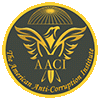
February 20, 2016
"“My sources within the US government have told me that they are looking into 1Malaysia Development Berhad (1MDB) on all fronts and are actively acquiring documents and identifying witnesses from around the world,” international investigator L. Burke Files, who heads up an antifraud agency, told The Post. “They are not interested in fines this time,” Files added, without elaborating."





